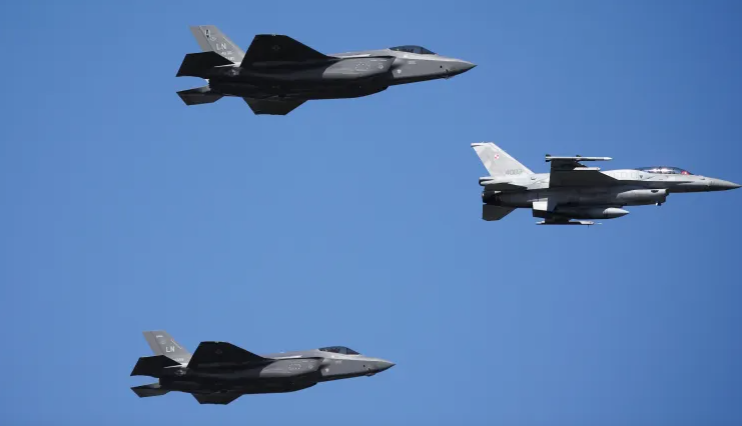Poland Scrambles Aircraft as Russia Strikes Ukraine’s Lviv City

On September 4, Poland scrambled aircraft in response to a significant Russian missile and drone attack on Lviv, a western Ukrainian city close to the NATO member’s border. The assault on Lviv marks the third time in eight days that Poland’s defenses have been activated due to increased Russian bombardment across Ukraine.

The attack resulted in the deaths of at least seven people, including three children, and left many more injured. Drone and missile strikes targeted historic buildings in the city center, causing extensive damage. Regional officials have reported that over 50 structures, including schools, homes, and clinics, were affected.
Andriy Sadovyi, the mayor of Lviv, shared a video on Telegram showing the devastation, with debris scattered across the city. The destruction underscores the severity of the attack and its impact on civilian infrastructure.
The operational command of Poland’s armed forces confirmed on the X platform that both Polish and allied aircraft were scrambled in response to the Russian aggression. This action reflects the heightened alert status in Poland due to the proximity of the attack to its border.
The recent escalation in violence comes as Russia continues its offensive across Ukraine, targeting key cities and infrastructure. The situation has heightened tensions within NATO, prompting swift defensive measures by member states.
In the wake of the attack, there has been a renewed focus on the security of NATO member nations bordering Ukraine. The coordination between Polish and allied forces highlights the ongoing vigilance and readiness to respond to potential threats.
The international community has condemned the attack, emphasizing the need for continued support for Ukraine amid the ongoing conflict. The devastation in Lviv serves as a stark reminder of the conflict’s impact on civilian areas and historical sites.
As the situation develops, Poland and its NATO allies are expected to maintain heightened security measures and continue monitoring the conflict closely. The response to this latest assault reflects the broader geopolitical tensions and the ongoing challenge of managing security in the region.
The attack on Lviv, coupled with Poland’s rapid response, illustrates the complex dynamics of the conflict and the critical role of international alliances in addressing regional threats.


